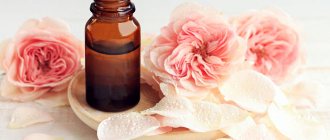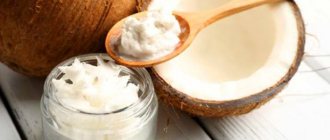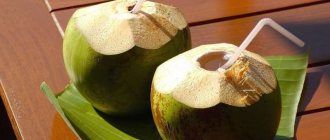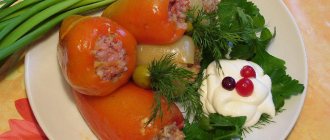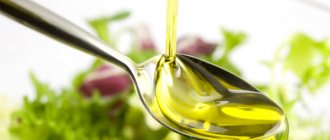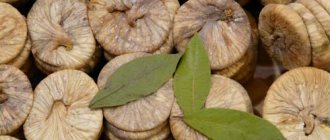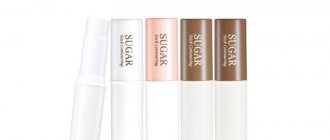This is my article published a year ago in the Aromatherapy Journal. I hope it will be of interest to parents of small and large children. The pastel work illustrating this article is also by me...
Source: Bulletin No. 6 // Interregional Public Organization “League of Professional Aromatherapists, Herbalists and Naturopaths” // Ed. Sakova I.V. - St. Petersburg: LLC Publishing House "LEMA", 2010
The use of essential oils in pediatric practice is determined by the following reasons:
- powerful bacteriostatic and bactericidal effect of essential oils;
- relatively low toxicity, harmlessness;
- wide range of therapeutic action.
In children of the first three years, the adsorption and release of any product occurs much more intensely than in older children. Increased permeability of the skin and mucous membranes in infants requires special care when applying essential oils to the surface of the body. Essential oils of mint, lavender, sage, fennel, thyme, tea tree, rose and a number of others have proven themselves well in pediatrics.
To create oil compositions for children, base oils are used: sunflower, olive, apricot, almond, jojoba, wheat germ, rose hip, and calendula.
Recommended dosages of essential oils for children of different ages.
From birth to one year (infancy): 1 drop of essential oil per 2 tablespoons of base oil (boiled and cooled) for massage; 1 drop of essential oil per 1 tablespoon of vegetable oil for rubbing; 1 drop of essential oil per 1 glass of water for a compress; 1 drop of essential oil per bath (from 3 months).
From one to 5 years (younger preschool age): 1-2 drops of essential oil per 0.5 tablespoons of base oil for massage; 2 drops of essential oil per bath.
From 5 to 12 years (senior preschool age and junior school age): 2-3 drops of essential oil per 0.5 tablespoon of base oil for massage; 3-4 drops of essential oil per bath.
Over 12 years old (teenagers): 3 drops of essential oil per 0.5 tablespoons of base oil for massage; 4-5 drops of essential oil per bath.
INDICATIONS FOR USE AND METHODS OF APPLICATION OF RECOMMENDED OILS
To aromatize indoor air for preventive purposes, it is recommended:
- pour hot water into the container of the FANLINE VE-180 humidifier air purifier,
- add a few drops of desired essential oil,
- connect the device to the network, set the required fan speed
| Fir oil contains more than 35 biologically active substances |
Fir essential oil 100%
Indications for use:
Fir oil contains more than 35 biologically active substances. It improves overall well-being and blood circulation, relieves fatigue. Adds fragrance and improves skin elasticity. It has anti-inflammatory, antimicrobial, wound-healing and antiseptic effects. Particularly effective for colds and flu.
Contraindications:
Individual intolerance. Not recommended for infants. Toxic if taken orally.
Directions for use:
Inhalations for colds and flu: add 1-2 drops of fir essential oil to a container of hot water, cover with a towel and inhale the vapors deeply for 5-6 minutes. The eyes should be closed.
Aromatization of indoor air: pour hot water into the container of the FANLINE VE-180 humidifier air purifier. Add 4-5 drops of fir oil, turn on the device, set the desired fan speed.
Eucalyptus essential oil 100%
Indications for use:
Eucalyptus essential oil is an antiseptic, bactericidal, regenerating, deodorizing agent. Eucalyptus oil is a natural flavoring agent and deodorant for sanitizing rooms, including children's rooms. Particularly effective for influenza, sore throat, and bronchitis.
Contraindications:
Individual intolerance. Not recommended for infants. Toxic if taken orally.
Directions for use:
Inhalations for flu, sore throat, bronchitis, cough: add 1-2 drops of eucalyptus essential oil to a container of hot water, cover with a towel and inhale the vapors deeply for 5-6 minutes. The eyes should be closed.
Aromatization of indoor air: pour hot water into the container of the FANLINE VE-180 humidifier air purifier. Add 2-5 drops of eucalyptus oil, turn on the device, set the required fan speed.
Tea tree essential oil 100%
| Clary sage oil is an excellent skin care product. Regulates the functioning of the sebaceous and sweat glands. |
Indications for use:
Tea tree essential oil is an all-natural antiseptic. It has a beneficial effect on the skin, eliminating itching, peeling, pustular rashes on the face, and youthful acne. Has a disinfectant and deodorizing effect. Tea tree oil has a short-term warming effect, can be used as an effective remedy for getting rid of uncomfortable sensations on the skin and a broad-spectrum antifungal agent. Particularly effective for colds and flu.
Contraindications:
Individual intolerance. Not recommended for children under 6 years of age. Toxic if taken orally.
Directions for use:
Inhalations for colds and flu:
Add 1-2 drops of tea tree essential oil to a container of hot water, cover with a towel and inhale the vapors deeply for 5-6 minutes. The eyes should be closed.
Aromatization of indoor air: pour hot water into the container of the FANLINE VE-180 humidifier air purifier. Add 2-5 drops of tea tree oil, turn on the device, set the required fan speed.
Aromatherapy for children from birth to one year.
At this age, massage of a child is very useful for his development and rapprochement with his parents. Massage sessions are provided daily after bathing. Do a light massage and stroking. In order to create physical contact with a child and let him feel your care, you do not have to be a professional massage therapist. Use aromatic massage oil prepared according to the following recipe:
- 100 ml almond oil (or 80 ml almond oil and 20 ml jojoba oil);
- 2 drops each of Roman chamomile, rose, neroli or lavender essential oil (or 1 drop each of rose and Roman chamomile).
Do not exceed the specified dosage!
A child should be given a massage when he is happy, healthy and cheerful. The massage room should be warm. There should be no jewelry on your hands. 10 minutes of massage is enough to achieve the effect. Stay in contact with your child: laugh, talk, sing to him.
Do not massage your child's hands as the essential oil may get into the mouth.
Essential oils should never be given orally to infants.
Colic or infantile cramps are a painful accumulation of gases in a child. In this condition, healthy babies between 6 and 14 weeks of age begin to cry for a long time at night, and nothing can calm them down. In 1989, Dr. Jan-Helge Larson showed that abdominal massage helps in this case. And it doesn’t matter whether it is carried out through clothing or directly on the naked body. He identified several reasons for this condition: from insufficient gas production to a sense of parental insecurity passed on to the child.
For colic, lightly massage the abdomen in a clockwise circular motion. Use the following oil composition: 1 drop of tangerine, Roman chamomile or dill essential oil to 2 tablespoons of base oil.
A compress will also help: dilute 1 drop of Roman chamomile essential oil in 1 glass of water, stir well, soak a piece of flannel fabric, and place it on the child’s stomach.
When treating constipation in children older than two months, use the following massage mixture: add 1 drop each of orange and rosemary essential oils to 3 tablespoons of olive oil. Massage your baby's belly in a clockwise direction.
In this case, you can also use folk remedies:
- 5-6 times a day, give 0.5 teaspoon of dill water - 1 teaspoon of dill seeds per 0.5 glass of water, brew in a water bath;
- Give 1 teaspoon of cumin water 5-6 times a day - take 1 tablespoon of cumin fruits, pour 1 glass of boiling water, cook for 5-10 minutes, cool;
- Give a teaspoon of weak chamomile infusion 5-6 times a day.
For diarrhea in children older than two months, use 1 drop each of ginger and lemon oil in a compress: dilute essential oils in a glass of water, mix well, blot a piece of cloth, place the cloth on the stomach.
Or dilute the same amount of oils in 3 tablespoons of olive or sunflower oil and massage the baby’s belly clockwise.
Seborrheic crusts on the scalp can be cured by lightly massaging the head with an oil mixture: thoroughly mix 1 drop of geranium essential oil in 1 tablespoon of almond oil or jojoba oil. Use daily until complete recovery.
You can make baby shampoo medicinal. To do this, add 1-2 drops of tea tree essential oil to 50 ml of shampoo. Shake shampoo well before use. Apply a small amount of shampoo to your child's head. Try to keep shampoo foam out of your child's eyes. Thoroughly rinse the foam from your head. Use shampoo for a week.
Difficulties falling asleep and anxiety are eliminated by adding 1 drop of lavender or Roman chamomile essential oil to the aroma lamp. Pour hot water into the recess of the aroma lamp, add essential oil, place a lit candle inside the aroma lamp, and scent the room for 30 minutes when the child is not in the room.
For diaper rash, use a scented cream for the affected skin: 1 drop of lavender essential oil per 15 g of cream.
An oil mixture is prepared to cleanse the skin. For children under two months - add 2 drops of neroli or rose essential oil to 2.5 tablespoons of olive or apricot oil. After two months, you can add 1 drop of bergamot and 2 drops of lavender or patchouli essential oil.
You can use flavored water to wash your baby: add 1 drop of lavender (or Roman chamomile, yarrow) essential oil to 0.5 liters of warm water and shake thoroughly.
For diaper rash, use 2 drops of sandalwood essential oil dissolved in 0.5 cups of kefir or milk (or other emulsifier) for a bath. Or use an infusion of string, chamomile - 1 tablespoon of string herb (or chamomile flowers), pour freshly boiled water, leave for 40 minutes, strain, add to the evening bath. A bath with herbs can be used every day even with healthy skin - to prevent skin diseases and restore the skin from micro-wounds.
In folk medicine, sunflower oil boiled in a water bath is used to treat diaper rash, burns, wounds and cracks in the skin of infants.
For diaper rash, the first thing to do is change diapers more often. Don't leave your baby in dirty diapers. Keep your child without them as much as possible. Avoid using chemically scented wipes. To cleanse the skin, use jojoba or calendula oil, boiled sunflower oil.
Cream for diaper rash: add 2 drops each of Roman chamomile and lavender (or yarrow) essential oil to 50 g of baby cream. If your doctor thinks the rash is due to thrush, add 4 drops of tea tree essential oil instead of these essential oils. Use a little cream twice a day. If irritation occurs, stop using it.
As an additional method, a bath is used for children from 3 to 6 months: add 1 drop of lavender (or Roman chamomile) essential oil to 1 tablespoon of full-fat milk. For children older than 6 months, you can use 1 drop of tea tree essential oil.
Teething is made easier in the following way. For a child over 6 months old, prepare massage oil: add 1 drop of lavender or Roman chamomile oil to 5 tablespoons of almond oil. Mix everything well. Apply no more than two drops of the oil mixture to the child's gums with your finger or cotton swab. Massage the face opposite the cutting tooth, along the jaw line towards the child's ear. Do not rub near the eye or mouth!
Preventive aromatherapy sessions during the cold season. Recommended methods: baths, aroma lamp, massage. For babies from two weeks to two months, essential oils are suitable: eucalyptus, lavender, neroli, rose. For babies over two months: bergamot, fennel, lavender, ginger, orange, patchouli, petitgrain, rosemary, sandalwood, ylang-ylang.
Carry out preventive procedures no more than 2-3 times a week. Use no more than 2 drops in the aroma lamp. The source of evaporation of essential oils should be no closer than 50 cm from the child’s face.
For coughs and colds, scent the children's room with essential oils of tea tree, cajeput, lavender or eucalyptus using an aroma lamp. Use 1 drop of essential oil in an aroma lamp.
Instead of an aroma lamp, you can place a cup of hot water with 1 drop of any of the indicated essential oils next to the crib.
For a runny nose, aromatizing the air in the child's room with 1-2 drops of lemon, eucalyptus, lavender or tea tree essential oil will help.
Folk remedies for runny nose in infants:
- Heat table salt in a frying pan until warm brown, pour it into a canvas bag and apply it to the bridge of the child’s nose.
For bronchitis in infants, use 1-2 drops of lavender essential oil in an aroma lamp.
Breast massage with the following oil mixture can provide significant help: add 1 drop of lavender or lemon essential oil to 2.5 tablespoons of sunflower, olive or apricot oil.

